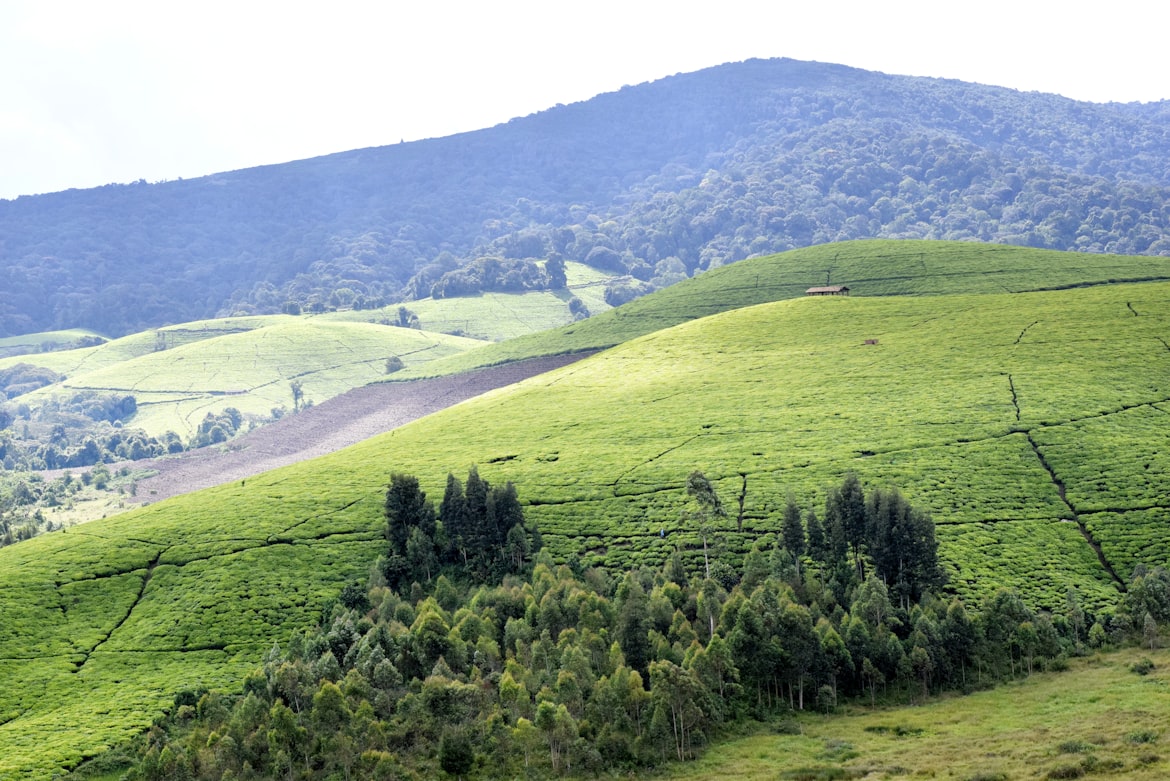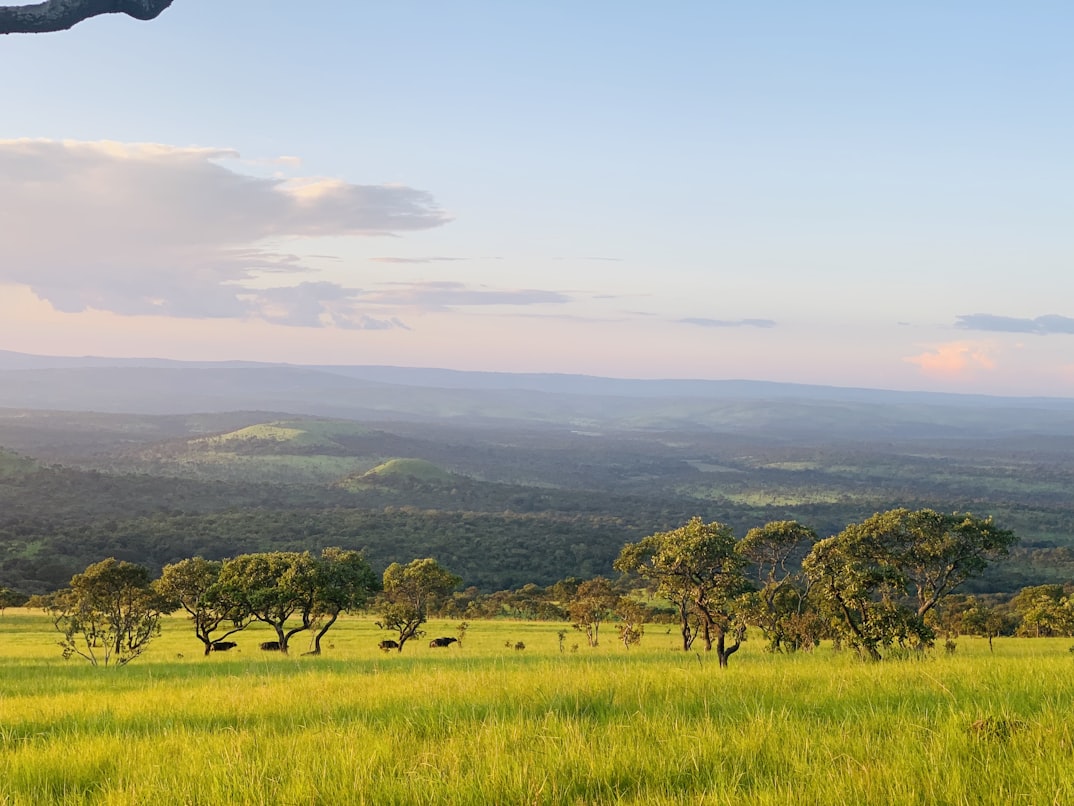Top Attractions
Burundi, though lesser-known, offers a captivating array of natural and cultural attractions. The Rusizi National Park is a must-visit for spotting hippos, crocodiles, and diverse bird species along the Rusizi River. Lake Tanganyika, one of the deepest lakes in the world, offers serene beaches and stunning views—particularly in the lakeside capital, Bujumbura. Nature lovers will also appreciate the verdant Kibira National Park, a dense rainforest ideal for hiking and chimpanzee spotting. Meanwhile, the Gishora Drum Sanctuary near Gitega offers a fascinating glimpse into the country's rich drumming traditions, which are deeply embedded in Burundian heritage.
Local Dishes
Burundi’s cuisine is simple yet flavorful, focusing on locally grown ingredients. A staple dish is ugali (a cornmeal mash), typically served with beans or stewed vegetables. Ibiharage (fried or stewed beans) is a national favorite, often accompanied by sweet plantains. Other notable dishes include brochettes—grilled skewers of meat served at roadside stands—and mukeke, a fish from Lake Tanganyika, traditionally grilled and enjoyed with spicy tomato sauce. For something sweet, try banana beignets sold by local street vendors.
Transportation Tips
Transportation in Burundi is modest but manageable. Minibuses and shared taxis are the most common forms of public transport, especially within Bujumbura and between towns. Motorcycle taxis are also popular for short distances. Roads outside the capital can be poorly maintained, particularly during the rainy season, so hiring a private car with a driver may be a safer and more reliable option for long-distance travel or visits to rural areas. Always confirm prices before boarding as meters are rarely used.
Budget Travel Tips
Traveling on a budget in Burundi is quite feasible. Basic accommodations and meals are very affordable, especially if you eat local food and stay in guesthouses or hostels. Opting for shared taxis or minibuses over private transport will further reduce costs. Negotiating prices—especially at markets and with drivers—is common practice. If you're planning on visiting national parks, try to join a small group to split the cost of guides and transport.
Safety Info
While Burundi has experienced political instability in the past, the security situation has improved in recent years. Still, travelers should stay informed about the current political climate and avoid demonstrations or large gatherings. Petty theft can occur in crowded areas, so keep valuables secure and avoid walking alone at night. It's also advisable to use reputable transportation services and stay in accommodations with good reviews.
Cultural Etiquette
Burundians are generally warm and respectful, and visitors are expected to show similar courtesy. Greeting people with a handshake is customary, and it's polite to use formal titles when addressing elders or officials. Modest clothing is recommended, especially in rural areas and religious sites. Asking permission before taking someone’s photo is both respectful and appreciated. Punctuality is flexible, but patience and politeness go a long way in social and business interactions.
Travel Style Fit
Burundi is ideal for off-the-beaten-path adventurers, culture seekers, and travelers looking for authenticity rather than tourist-heavy destinations. It suits independent travelers who enjoy nature and cultural immersion, particularly those willing to handle modest infrastructure and embrace the unpredictable nature of travel in emerging destinations. It may be less suited for first-time international travelers or those seeking a highly polished experience.

Best Time to Visit
The best time to visit Burundi is during the two dry seasons: June to August and December to February. These months offer the most favorable weather for wildlife viewing, hiking, and exploring cities without the disruptions of heavy rains. The wet seasons—March to May and September to November—can make travel difficult due to muddy roads and higher risk of landslides in rural areas.
Accommodation Recommendations
For low-budget travelers, the Urban Lodge Bujumbura offers affordable dorm-style and private rooms in a safe neighborhood with basic amenities and a social atmosphere. Another option is King’s Conference Centre, which is budget-friendly and centrally located.
Mid-range travelers will find comfort at Hotel Club du Lac Tanganyika, which offers lakeside views, spacious rooms, and an outdoor pool at reasonable rates. It's a great balance of value and comfort.
For luxury travelers, Kiriri Garden Hotel in Bujumbura provides a high-end experience with elegant rooms, fine dining, and panoramic views of the city and Lake Tanganyika. Their service and ambiance cater perfectly to those looking for indulgence and tranquility.
Languages Spoken
Kirundi is the national language and spoken by nearly all Burundians. French is also an official language and is used in government, education, and formal settings. Swahili is widely spoken in business and border regions, especially near Lake Tanganyika. English is not commonly spoken, so learning a few phrases in French or Kirundi will greatly enhance communication and show cultural respect.
Currency
The official currency of Burundi is the Burundian Franc (BIF). While major hotels in Bujumbura may accept foreign currency or cards, most transactions are cash-based, and ATMs can be unreliable. It’s wise to bring enough cash in small denominations and exchange at authorized bureaus or banks, as counterfeit notes can be an issue in informal exchanges.
Common Traveler Mistakes to Avoid
One common mistake is underestimating how long it takes to travel between destinations, especially during the rainy season. Roads can be in poor condition and routes less direct than expected. Another is not having enough cash—ATMs are limited and may not accept foreign cards. Lastly, some travelers assume they can drink the tap water; it's best to stick with bottled or filtered water to avoid illness.
Essential Apps & Tools
Maps.me is a reliable offline map that covers most of Burundi and is invaluable for navigating rural areas. WhatsApp is widely used for communication, including by hotels and drivers. Google Translate (especially with French or Swahili downloaded offline) can be handy for quick language assistance. XE Currency helps with real-time currency conversions, particularly useful when exchanging cash.
Suggested Itinerary Styles
A well-paced itinerary in Burundi could start with two days in Bujumbura exploring cultural sites and relaxing on the lakeshore. From there, spend a day or two at Rusizi National Park for wildlife viewing, followed by a scenic drive to Gitega to experience traditional drumming performances at the Gishora Drum Sanctuary. If time allows, a day trip into the Kibira National Park offers rewarding nature experiences. This itinerary blends cultural immersion, wildlife, and relaxation within a week.
Fun Facts
Burundi is one of the few countries in the world with a drum culture so significant that its Royal Drummers are UNESCO-recognized. Lake Tanganyika, bordering Burundi, is the second-deepest lake in the world and supports a thriving ecosystem. Despite its small size, Burundi boasts incredibly diverse landscapes—ranging from rainforest to savannah to lakeshore.
